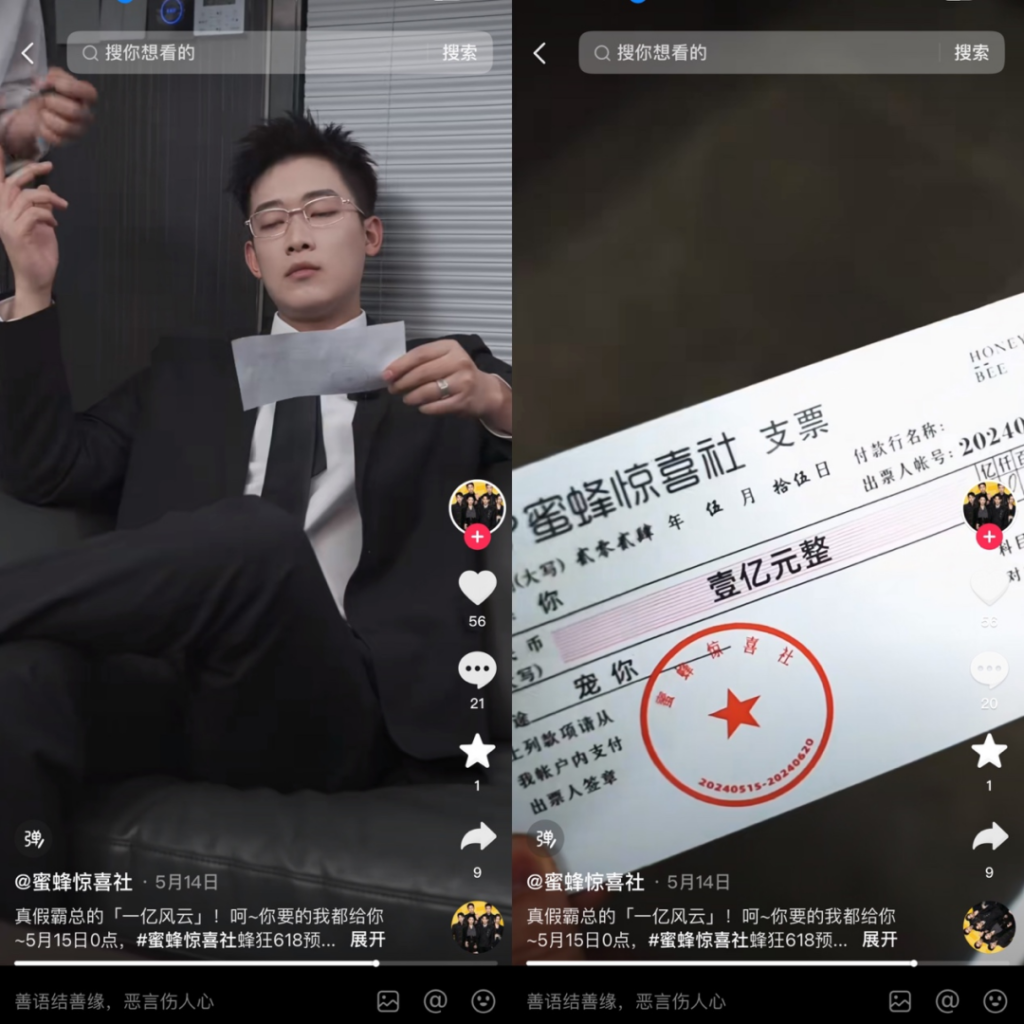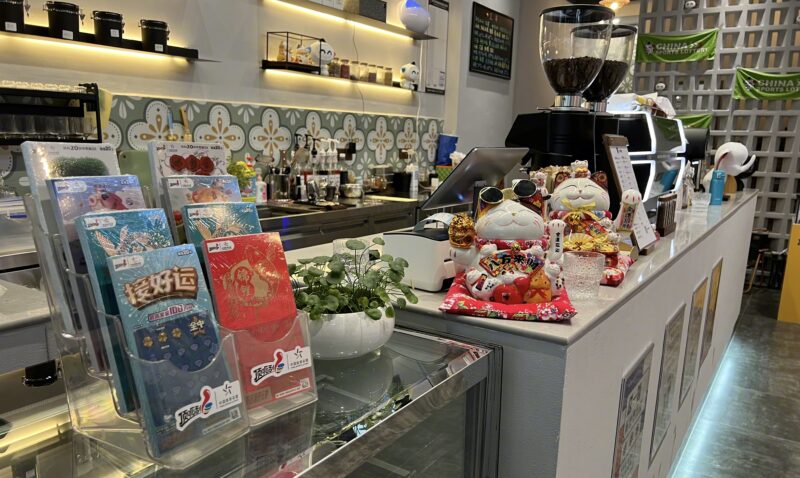This year’s 618 shopping festival has been challenging. Vipshop kicked off its 618 promotions early on 17 May, followed by Pinduoduo and Tmall, who launched their 618 activities on 20 May. E-commerce platforms such as JD.com, Douyin, and Xiaohongshu (RED) subsequently joined the fray. In terms of duration, this year’s 618 promotion can be called “the longest in history.” Another notable change is that the major e-commerce platforms have announced the removal of the pre-sale mechanism used for more than a decade, focusing instead on “spot goods sales.”
For brands aiming to stand out during this year’s 618 festival, they need to align with the platform’s new strategies and requirements while adapting to the evolving preferences of consumers. Simply put, users are eager to see more new faces and receive more offers during livestreams and have a renewed interest in microdramas featuring products. Platforms are applying AI on a large scale to enhance the user service experience, but its effectiveness remains to be seen.
Star anchor is the real star
After the livestreaming e-commerce sector entered its second phase, both users and livestreams are returning to rationality. Previously prominent anchors such as Viya have ceased livestreaming, and Luo Yonghao has semi-retired, leaving only Li Jiaqi and Simba still active. Even before the start of this year’s 618, the topic #Li Jiaqi said that this year’s 618 promotion is difficult# (李佳琦称今年618大促是难的) trended on the Weibo search, garnering 270 million views. Under pressure, Li Jiaqi even participated in “Call Me by Fire” (a Mango TV reality show featuring middle-aged male celebrities), stating, “I need to make money to give red envelopes to the fans!”
Although the livestreaming landscape has stabilised, the recurring theme is change. Data from May shows that Jia Nailiang topped the sales chart on Douyin with 707 million RMB (approx. 97.4 million USD) in sales. Dong Yuhui’s livestreaming room “Walk with Hui” ranked second with 533 million RMB (approx. 73.43 million USD) in sales. ‘Crazy Little Brother Yang’ returned to the top ten, ranking ninth with 235 million RMB (approx. 32.38 million USD) in sales. Meanwhile, Jia Nailiang, a celebrity, surprisingly outperformed many seasoned anchors to claim the top spot.
The livestreaming landscape has stabilised, but the recurring theme is change.
On 21 May, Jia Nailiang hosted an “International Big Brand Beauty Carnival” livestream, using the spot goods sale method to launch the 618 promotion. Within just three hours, Jia Nailiang’s livestream achieved a gross merchandise volume (GMV) of over 100 million RMB (approx. 13.78 million USD). He topped the overall Douyin sales chart with total sales of 353 million RMB (approx. 48.63 million USD) during the 618 period, 1.53 million orders, 59.77 million views, and a peak of 480k concurrent viewers.
Jia Nailiang’s rise as the leading figure in Douyin’s livestreaming is indicative of this year’s 618 trend, where the once-dominant livestream rooms have become stagnant. There is speculation that, following the decline in other top livestreaming performances, Douyin may have provided significant subsidies to Jia Nailiang’s live room. How long Jia Nailiang can maintain his position as the “new leader of Douyin e-commerce” remains uncertain. However, this time, the star anchor is genuinely a star.

Microdramas engage consumers
In an even bigger change, this was the first 618 where microdramas took centre stage, with livestreaming anchors starting to cross over into microdrama production. ‘Crazy Little Brother Yang’ launched the ‘Three Sheep Microdrama’, and Simba’s Xinxuan livestreaming brand collaborated with Oushiman to launch ‘She Looks Like a Bright Pearl’. Taobao also released L’Oréal’s ‘League of Milk Dads’ and other branded microdramas. Douyin’s Jiang Seventeen teamed up with Kans to create a new customised microdrama called ‘Let Love Bind’. All microdrama pages feature links to 618 sale items in the bottom left corner.
Microdramas serve as a form of advertisement, an advanced form of cast streaming advertisement based on the short video ecosystem, capable of carrying multiple marketing strategies. For the 618 promotion, microdramas produced by various creators in the industry can easily gather traffic on short video platforms. Embedding “618 product information” in the microdrama plots or placing “618 product links” on the play page is currently one of the most effective ways for brands to participate in the 618 promotion.

All microdrama pages feature links to 618 sale items in the bottom left corner.
However, there are some inherent disadvantages to brand-customised short dramas. Since the core purpose of such productions is brand promotion, their plots are often simplified, and excessive product placement can strongly disrupt users, often deterring audiences who dislike advertising. Therefore, while microdramas can be a valuable option for brand promotion during a major marketing event like 618, brands must also respect content creation.
AI Application
This year’s 618 event marks the first e-commerce mid-year promotion since the launch of AI technology. Platforms such as JD.com, Taobao, Baidu, and Douyin each have their own AI products. Currently, AI applications in the e-commerce sector primarily focus on three areas: AI anchors, AI customer service, and AI telemarketing.
AI anchors, AI customer service, and AI telemarketing
On the afternoon of 16 April, JD.com’s AI digital human made its live debut. During the 618 period, JD.com offered AI digital livestreaming technology to merchants free of charge, helping them to broadcast at low cost. By 16 May, Taobao also launched the Taobao Merchant Tool ‘Quick’ Product Website, making it freely available to Taobao and Tmall merchants. This tool, specifically developed for e-commerce sellers, aids in extracting selling points, copywriting, merchandise map generation, and data analysis across various applications.
The essence of using AI to attract consumers is still to provide a better shopping experience. However, the performance of AI digital humans in livestreaming has been less than stellar. Responses are often mechanical, with delayed replies of up to 20 seconds, and consultations are frequently hard and stereotyped. AI telemarketing, where AI is used to actively call consumers before promotional activities, has also upset many consumers due to the proliferation of such calls.
At this stage, AI customer service appears to be the only application in e-commerce that can bring positive changes for consumers. AI customer service offers several advantages over human customer service, such as more patient and detailed responses, and 24/7 availability. Another novelty is Taobao’s launch of the “Tmall AI Bargaining Assistant,” which claims to help users buy more affordable goods during the 618 period. However, user feedback has been mixed, with some describing awkward experiences: “The AI haggled like a boss, then left abruptly, leaving me feeling socially embarrassed in front of the shop.”









